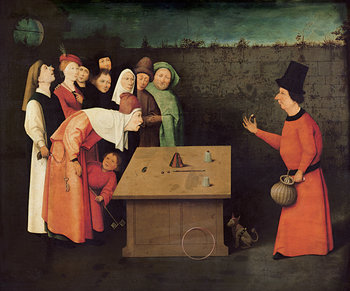|
| |
In my younger and more vulnerable years my father gave me some advice that I've been turning over in my mind ever since. Whenever you feel like criticizing anyone, he told me, just remember that all the people in this world haven't had the advantages that you've had.
~ Great Gatsby (opening lines), F. Scott Fitzgerald An advantage is a capability or condition that is favorable to positive outcomes in life. Each advantage has a corresponding disadvantage such that the word is used in a comparative sense to suggest that life is easier for some than others. The following are illustrative examples of an advantage.HealthHealth is a primary type of advantage.SocietyBeing born into a society with a high quality of life.FamilyThe kindness, stability and support offered by a family.StabilityA life free of major disruptions such as war.WealthAccess to financial resources such as wealth and income. IntelligenceThe ability to accomplish things with your mind. There are many types of intelligence and thinking processes can be directed, refined and improved.
CharacterPositive character traits such as a self-control or openness.Preferential TreatmentPreferential treatment is an advantage given to one group over another. This can be based on patterns of irrational thought known as biases or can be institutionalized as formal rules and policies. For example, a banker who easily grants credit to one ethnic group but declines equally strong applications from another ethnic group based on an ingroup bias.Self-ImageViewing yourself in positive terms and believing in your own intelligence, history, talents and agency. People who believe in you greatly influence your self-image as you develop. Likewise, culture has a role in building up self-image. If people are told negative things about themselves or told they don't have agency, self-image may be damaged.Social StatusSocial status such as popularity, physical attractiveness or youthfulness.KnowledgeKnowing things, particularly foundational knowledge such as first principles, is a powerful type of advantage. For example, the opportunity to go to good schools is a large advantage in life.ExperienceExperiences give us advantages. For example, if you have the opportunity to meet a great diversity of people you may feel comfortable in a broad range of social situations. Relational CapitalRelational capital is the value of your relationships with people. For example, a former coworker who gets you hired into a good job that changes the entire course of your life. Cultural CapitalCultural capital is the ability to communicate and influence within a particular culture. For example, if you grew up in Japan it may be easier to navigate the office politics of a Japanese company than if you grew up in Germany. Cultural capital can also relate to socioeconomic class, super culture and subculture.RespectEarned respect from others such as a professional reputation. TalentTalent such as a brilliant storyteller who easily influences or produces creative works of great value.PhilosophyLooking back, an individual may feel that their approach to life turned out to be a large advantage. For example, an individual who attributes success in life to pragmatism, optimism or stoicism.Innate Advantage An innate advantage is an advantage you gain without any action on your part. For example, being born into a nation with a high quality of life.Acquired AdvantageAn advantage earned with effort. Humans have significant agency and aren't hapless victims of circumstance. For example, an individual who gets a degree from a high status university with self-discipline and hard work.Critical Theory & AdvantageCritical theory is an academic approach or philosophy based on the assumption that power structures are oppressive and people have little or no agency. This is a Marxist academic tradition that is well designed for criticizing dominant societies, cultures and institutions. Under critical theory, success or failure in life is viewed as a result of advantages created by power structures as opposed to being a result of human agency. NotesThe advantages of organizations are known as competitive advantages.Due to the great variety of human pursuit, there is also a great variety of advantage. An advantage in one domain or situation can be a disadvantage in another. For example, height can be an advantage in one sport and a disadvantage in another. It is almost impossible to judge the advantages or disadvantages an individual has had without walking in their shoes. For example, a wealthy individual may have experienced health problems or unkindnesses that made their life difficult.Next: Disadvantage
If you enjoyed this page, please consider bookmarking Simplicable.
© 2010-2023 Simplicable. All Rights Reserved. Reproduction of materials found on this site, in any form, without explicit permission is prohibited.
View credits & copyrights or citation information for this page.
|
































